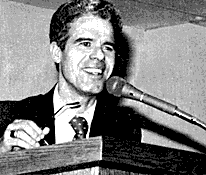
Former U.S. Rep. Jane Harman
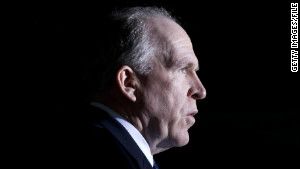
John Brennan, the president's top counterterrorism adviser
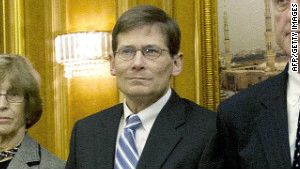
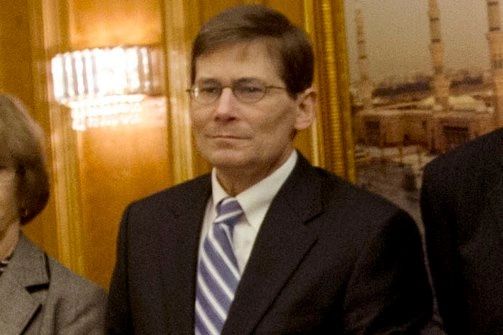

Acting CIA Director Michael Morell
http://edition.cnn.com/2012/11/13/opinion/bergen-petraeus-replacement/?hpt=hp_bn7
Tough choice for Obama on Petraeus' successor
By Peter Bergen, CNN National Security Analyst November 13, 2012
STORY HIGHLIGHTS
- Peter Bergen: President Obama has several qualified choices for replacing David Petraeus
- He says some could face questions on CIA interrogation techniques, secret prisons
- Acting Director Michael Morell had key part in response to 9/11, search for Osama bin Laden
- Other candidates include John Brennan, Michael Vickers and Jane Harman

Peter Bergen
Editor's note: Peter Bergen is CNN's national security analyst and the author of "Manhunt: The Ten-Year Search for bin Laden -- From 9/11 to Abbottabad," from which this article is, in part, adapted.
(CNN) -- In choosing a new CIA director to replace David Petraeus, President Barack Obama has a range of well-qualified candidates to choose from, although some of the most qualified were in management roles at the CIA when controversial interrogation techniques were used by agency interrogators questioning al Qaeda prisoners and the CIA was maintaining secret prisons overseas to detain members of al Qaeda.
Michael Morell, a three-decade veteran of the CIA, is now the acting director of the agency and a leading contender to become the next director of central intelligence.
As a candidate for the permanent job, Morell has all the advantages and disadvantages of someone who has been instrumental in recent successes at the CIA such as tracking down Osama bin Laden. But he was also executive assistant to CIA Director George Tenet in the George W. Bush years when the agency waterboarded three detainees and also imprisoned a larger number in the secret prisons overseas where they were subjected to other coercive interrogation techniques.
Any confirmation hearing for Morell would run the risk of a public discussion of the efficacy and ethics of such controversial practices. And there would also be the risk that such a hearing might open up the Pandora's box of the CIA's many failures that led to the fiasco of the deeply flawed assessment that Saddam Hussein was building up his weapons of mass destruction program in the run-up to the Iraq War in 2003.
Petraeus probe includes top general in Afghanistan
There is also the current controversy about why the intelligence committees in Congress were informed only on Friday about the FBI investigation into Petraeus. Morell and the FBI's deputy director, Sean Joyce, are scheduled to meet with members of the intelligence committees Wednesday to discuss the matter.
In contrast to Morell, other potential candidates for the director's job at CIA, such as former U.S. Rep. Jane Harman or Michael Vickers, the top intelligence official at the Pentagon, were not working at the CIA when coercive measures were used on al Qaeda detainees.
On the other hand, few have played such a key role in some of the most dramatic moments in the war against al Qaeda as Morell has.
From the day that Bush took office on January 20, 2001, every morning, six days a week, Morrell was the CIA official who briefed the president about what the intelligence community believed to be the most pressing national security issues.
On August 6, 2001, eight months after Bush was inaugurated, Morell met with the president at his vacation home in Texas to deliver the president's daily brief.
The top-secret briefing that Morell delivered was titled "Bin Ladin Determined to Strike in U.S."
A month later, on the morning of September 11, 2001, in Sarasota, Florida, Morell gave the daily briefing as usual to the president. There was nothing memorable in it.
Who's who in the Petraeus scandal
Then Morell got into the president's motorcade to head to the local elementary school where Bush planned to meet with some students. At the school, where Bush was reading a story to a group of second-graders, the news came on TV that a second jet had hit the World Trade Center.
Bush and a small group of other officials including Morell were hustled out of the school to head to Air Force One, which took off for Barksdale Air Force Base near Shreveport, Louisiana.
In Washington, news soon circulated that a Palestinian terrorist organization, the Democratic Front for the Liberation of Palestine, had claimed responsibility for the attacks.
Bush summoned Morell, asking, "What do you make of this?" Morrell replied, "The DFLP has a history of terrorism against Israel, but its capabilities are limited. It does not have the resources and reach to do this."
In the early afternoon, Air Force One headed from Louisiana to Offutt Air Force Base near Omaha, Nebraska. Bush asked to see Morell again, and pushed him for his opinion about who was behind the attacks. "I don't have any intelligence as yet, so what I am going to say is my personal view," Morell said, "There are two terrorist states capable of conducting such a complex operation -- Iran and Iraq -- but neither have much to gain and everything to lose from attacking the U.S."
The Petraeus affair: A lot more than sex
Morell added, "The responsible party is almost certainly a nonstate actor and I have no doubt that the trail will lead to bin Laden and al Qaeda," according to a U.S. intelligence official with knowledge of the conversation.
Five months later on January 4, 2002, again at Bush's vacation ranch in Texas, Morell had the delicate task of informing the president that it was the CIA's assessment bin Laden had fought at the Battle of Tora Bora in eastern Afghanistan during mid-December 2001, but he had survived and escaped.
Bush was incensed at this and became hostile, as if Morell himself were the culprit.
Flash forward to the summer of 2011: Morell, an unassuming, scholarly analyst in his mid-50s who speaks in terse, cogent paragraphs, was now the deputy director of the CIA. He was one of a small group of officials at the agency who knew there was a quite promising lead on the possible whereabouts of bin Laden that led to a large compound in the northern Pakistan city of Abbottabad.
Then-CIA Director Leon Panetta, together with Morell and some of the analysts working on the hunt for bin Laden, went to Obama and told him, "We think there is a strong possibility that bin Laden is in the Abbottabad compound."
The analysts believed this with varying degrees of certainty, with most estimating the probability at 80%. The lead analyst was at around 90%, while Morell was at 60%.
"Why do people have different probabilities?" Obama asked.
"Intelligence is not an exact science," Morell explained. "Even if we had a source inside the compound saying bin Laden was there, I'd only be at 80% because sources are of varying reliability. Those analysts who are at 80% to 90% have been tracking al Qaeda in recent years and have had great success stopping plots and undermining the organization. They are confident. The folks at the lower end of the range are those who lived through intelligence failures, particularly the Iraq WMD (weapons of mass destruction) issue."
Of course, we now know that bin Laden was indeed hiding in the compound in Abbottabad, and the fact that Morell was the overall manager of the investigation that led to al Qaeda's leader will surely weigh in his favor to be the nominee for the top job at CIA.
Given the personal problems that have faced Petraeus and now perhaps Gen. John Allen, the outgoing commander in Afghanistan, character issues will surely weigh heavily in Obama's considerations.
Petraeus biographer made trips to Afghanistan
There are others whom Obama might pick to run the CIA, such as John Brennan, his top counterterrorism adviser, who had a distinguished career at the agency, including a tour as station chief in Saudi Arabia and who also led both the Terrorist Threat Integration Center and its successor, the National Counterterrorism Center, following the 9/11 attacks.
Brennan, a no-nonsense graduate of Fordham who speaks Arabic, was Obama's first pick for CIA director in 2008 but withdrew his name from consideration after it became clear that his nomination hearings would be complicated by some in Congress who would grill him about the waterboarding of detainees in CIA custody and the agency's prisons overseas.
It's also not clear why Brennan would want the CIA job given the fact that in his present position he gets to see the president far more often than any CIA director, and from his windowless office in the basement of the West Wing of the White House, he has dominated U.S. counterterrorism policy on issues such as drones, Pakistan, Yemen and the hunt for al Qaeda's leaders, including bin Laden.
Another plausible candidate is Michael Vickers. He had a storied career at the CIA, where as a young man he was the agency's principal military strategist on the Afghan "account" during the 1980s war against the Soviets. Vickers helped to funnel vast numbers of weapons through the Pakistanis to the various Afghan mujahedeen groups that defeated the Soviets.
Timeline of the Petraeus affair
Vickers' doctorate in military history from Johns Hopkins and owlish exterior mask the fact that he is a risk taker, albeit in a calibrated, cerebral way. He left the CIA when he was only 32, having already played a key role in the most successful covert operation in the agency's history -- expelling the Soviets from Afghanistan -- to get an MBA at Wharton. And he was a Special Forces officer in Central America.
Like both Morell and Brennan, Vickers also played a key role in the operation to find bin Laden. In his previous job at the Pentagon, he was the civilian overseer of Special Operations Forces and was intimately involved in the planning of the SEAL raid in Abbottabad. But unlike Morell and Brennan, Vickers wasn't at the CIA when waterboarding and other coercive interrogation techniques were being employed by the agency.
Given all the consternation on Capitol Hill about the circumstances surrounding the attack on the U.S. Consulate in Benghazi, Libya, in September in which the U.S. ambassador was killed along with two CIA employees, the Obama administration could decide to tap someone who has deep experience on the Hill.
An obvious candidate would be Harman, who as a member of the House of Representatives from California between 1993 and 2011 served on all the major committees focused on national security: Armed Services, Intelligence and Homeland Security. Now running the Woodrow Wilson International Center for Scholars in Washington, Harman is regarded as one of the Democratic Party's leading experts on national security.
If appointed and confirmed, Harman would be the first woman director of the CIA.
A further consideration: Another former nine-term Democratic congressman from California, Panetta, now the defense secretary, led the CIA for more than two years and is regarded as one of the most effective directors of the agency in recent decades.
Feinstein to investigate why FBI didn't notify Congress
Follow us on Twitter @CNNOpinion
Join us on Facebook/CNNOpinion
Become a fan of CNNOpinion
Stay up to date on the latest opinion, analysis and conversations through social media. Join us atFacebook/CNNOpinion and follow us @CNNOpinion on Twitter. We welcome your ideas and comments.
Michael Morell or John Brennan may succeed Petraeus
By Jim Michaels and Aamer Madhani, USA TODAY
12:34AM EST November 13. 2012 - WASHINGTON – President Obama will probably avoid a prominent name and instead seek out a quiet professional to replace David Petraeus, the head of the CIA who resigned after acknowledging an extramarital affair, experts said Monday. High on the list are the CIA's deputy director and the White House's top counterterrorism adviser, according to security analysts.
"They have two good candidates from within" the administration, said Michael O'Hanlon, a Brookings Institution analyst and member of the CIA advisory board.
The inside track may go to Michael Morell, who was named as the agency's acting director immediately after Petraeus resigned. Tommy Vietor, National Security Council spokesman, noted that Morell, who served as one of the primary briefers to the president during planning of the operation that led to the killing of Osama bin Laden, "developed a very close relationship with the president" and "earned the president's trust." Morell is a career CIA officer and began his career at the agency as an analyst tracking international energy issues, then worked for 14 years as an analyst and manager on East Asia. He has held several leadership positions at the agency. Morell could serve as acting director for several months before a permanent replacement is named. The administration may also be considering John Brennan, the White House's top counterterrorism adviser, who has overseen the expanded use of drones and special operations forces against Muslim terrorists. Brennan carries some political baggage that could make Senate confirmation difficult. He withdrew his name from consideration for a top intelligence position in 2008 because of his alleged links to "enhanced interrogation techniques" while an official at the CIA. Also under consideration are Michael Vickers, a top Defense Department official, and Jane Harman, a former congresswoman who was a ranking Democrat on the House Intelligence Committee, according to analysts. Rep. Mike Rogers, R-Mich., chairman of the House Intelligence Committee and a former FBI official, was another possibility, according to a report in The New York Times. Experts said the administration will want to avoid a nomination process that dredges up controversial issues, including the attack on the U.S. consulate in Benghazi, Libya, that led to the death of the U.S. ambassador and three others.
"I don't think you need to have a major personality at CIA," said Reuel Marc Gerecht, a fellow at the Foundation for Defense of Democracies and a former CIA case officer. "It's not required."
http://www.usatoday.com/story/news/politics/2012/11/12/petraeus-congress-obama/1700223/
Feinstein: Petraeus still likely to testify on Benghazi
THE INVESTIGATION AND RESIGNATION OF DAVID PETRAEUS
Key events preceding David Petraeus' resignation as CIA director

DAVID PETRAEUS
Spring/early summer
FBI notified
A close associate of Petraeus reports to the FBI that she is being harassed in a series of e-mails.
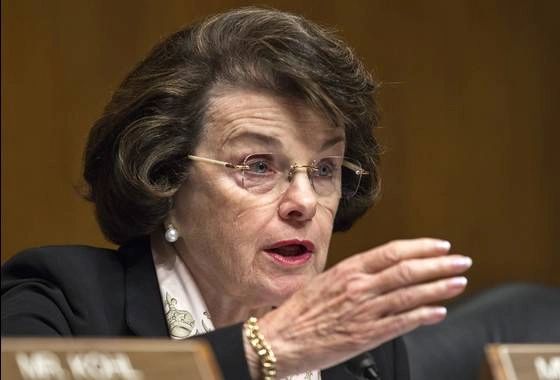
Sen. Dianne Feinstein, D-Calif., who chairs the Senate Intelligence Committee, said it was a "mistake" to keep congressional leaders in the dark during the FBI's investigation.(Photo: J. Scott Applewhite, AP
STORY HIGHLIGHTS
- Sen. Dianne Feinstein is chair of Senate Intelligence Committee
- Feinstein threatened to subpoena records on a trip Petraeus made to Libya
- FBI should have told Congress about the Petraeus inquiry sooner, Feinstein says
Jackie Kucinich and Kevin Johnson, USA TODAY:
11:36PM EST November 12. 2012 - WASHINGTON — Former CIA director David Petraeus will likely be called to testify during upcoming congressional hearings into the deadly Sept. 11 attacks on the U.S. Consulate in Benghazi, despite his abrupt resignation last week over an affair with his biographer, the chairwoman of the Senate Intelligence Committee said Monday.
Sen. Dianne Feinstein, D-Calif., expressing deep concern about the need to hear from Petraeus, also threatened to subpoena records detailing a trip that the former CIA director made to Libya in the weeks before his resignation. Feinstein said congressional leaders have been blocked from reviewing the report. House and Senate committees open a series of hearings into the Benghazi matter this week.
"That's unacceptable,'' she said in an interview on MSNBC. "We are entitled to this trip report, and if we have to go to the floor of the Senate on a subpoena we will do just that … It may have some very relevant information to what happened in Benghazi."
Meanwhile, details about the FBI investigation that revealed Petraeus' affair with Paula Broadwell — and ultimately prompted his resignation — continued to be disclosed Monday.
Among them:
- FBI agents were searching Broadwell's Charlotte home late Monday, FBI spokeswoman Shelley Lynch said. Lynch would not say what prompted the search. Earlier Monday, Feinstein said the FBI concluded that no classified material had been compromised.
- In addition to personal e-mail accounts, Broadwell and Petraeus took pains to disguise some of their personal communications, sometimes leaving messages for each other in joint electronic accounts that only they could access, a federal law enforcement official told USA TODAY. The official has been briefed on the matter, but is not authorized to speak publicly.
- Broadwell also allegedly used electronic accounts, other than her personal e-mail accounts, to send a series of harassing messages to a Petraeus family friend, the official said. That friend, identified as Jill Kelley, 37, of Tampa, later reported the communications to the FBI, launching the broader inquiry that revealed the Petraeus-Broadwell relationship and concerns about whether classified information held by the then-CIA director might be at risk. No sensitive information was found to be compromised, Feinstein said.
- Kelley, an unpaid social liaison to MacDill Air Force Base in Tampa, shared her initial concerns about the messages with an acquaintance at the FBI, the federal law enforcement official said. That agent then passed the information to the bureau's cybercrime investigators who began the inquiry. Apparently concerned that the investigation was not being handled properly, the agent expressed his concerns in late October to Rep. Dave Reichert, R-Wash. Reichert then referred the agent to House Majority Leader Eric Cantor, R-Va., who spoke to the agent and then instructed his staff to alert FBI Director Robert Mueller. The federal law enforcement official said that Mueller and Attorney General Eric Holder had been informed of the investigation in the summer.
In another development, the FBI is reviewing the behavior of that agent because he allegedly sent a shirtless photo of himself to Kelley before she brought the harassment allegations to him, the official said. The matter is a performance issue
Petraeus and Broadwell have not been available for comment. Kelley and her husband, Scott, issued a statement Sunday through a spokeswoman, saying only: "We and our family have been friends with Gen. Petraeus and his family for over five years. We respect his and his family's privacy and want the same for us and our three children.''
In addition to the pending Benghazi investigation, Feinstein said congressional leaders would also question FBI official about why they weren't briefed on inquiry that triggered Petraeus' resignation.
Feinstein said it was a "mistake" to keep congressional leaders in the dark during the FBI's e-mail probe, comparing the unfolding scandal to "peeling an onion."
"Every day another peel comes off and you see a whole new dimension to this," she said. "So, my concern has actually escalated over the last few days."
She called the decision of the FBI whistle-blower to inform House members of the investigation "deeply disturbing."
The FBI did not brief the White House or congressional intelligence committees after learning this summer of Petraeus' romantic involvement with his biographer because there was no evidence that classified material had been compromised, the federal law enforcement official said.
The official said the inquiry—which first focused on Broadwell's alleged harassing e-mails— revealed no national security threats and was handled internally like other criminal investigations, despite its link to the CIA director.
"It was an ongoing criminal investigation,'' the official said. "There are intelligence issues that, if they become matters of national security, they are shared. You don't brief (administration and congressional officials) if there only concerns about an intelligence issue.''
Contributing: Donna Leinwand
THE INVESTIGATION AND RESIGNATION OF DAVID PETRAEUS
Key events preceding David Petraeus' resignation as CIA director

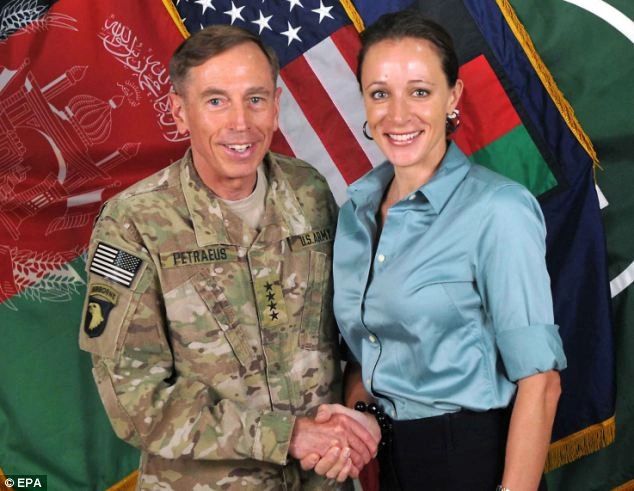


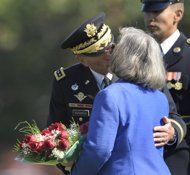



Late summer/early fall
Probe leads to biographer
An FBI investigation allegedly traces communications to Petraeus biographer Paula Broadwell.
(July 13, 2011 handout image by International Security Assistance Force NATO via Getty Images)
Spring/early summer
FBI notified
A close associate of Petraeus reports to the FBI that she is being harassed in a series of e-mails.
(Nov. 9, 2012 photo by Mark Wilson, Getty Images)
Late summer/early fall
Probe leads to biographer
An FBI investigation allegedly traces communications to Petraeus biographer Paula Broadwell.
(July 13, 2011 handout image by International Security Assistance Force NATO via Getty Images)
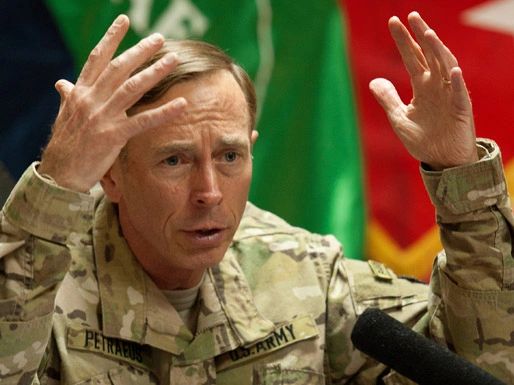 Pool photo by Paul J. Richards
Pool photo by Paul J. Richards
Two weeks ago
A meeting with Petraeus
FBI meets with Petraeus to discuss findings of its investigation.
(July 9, 2011 pool photo by Paul J. Richards)
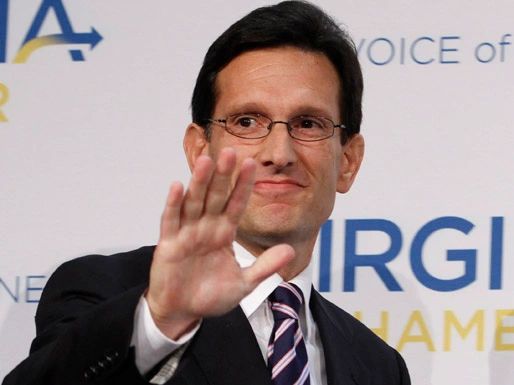 Steve Helber, AP
Steve Helber, AP
Oct. 27
Cantor talks to FBI source
Rep. David Reichert, R-Wash., asks House Majority Leader Eric Cantor, R-Va. (pictured here), to speak with an FBI source he found credible regarding Petraeus. Cantor speaks to the source the same day. "Eric talked to the person and found him to be credible," says Cantor spokesman Doug Heye. Cantor instructs his chief of staff, Steve Stombres, to alert the FBI director's office about the conversation.
(Oct. 1, 2012 photo by Steve Helber, AP)
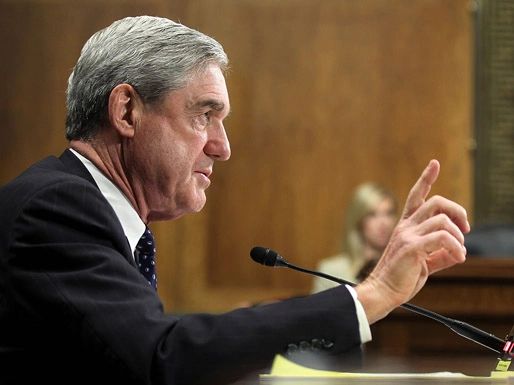 Steve Helber, AP
Steve Helber, AP
Oct. 31
Cantor's office calls FBI
Steve Stombres, Cantor's chief of staff, connects with the office of FBI Director Robert Mueller (pictured here). Asked about the time lag, Cantor spokesman Doug Heye says the federal government was closed for two days because of Hurricane Sandy. After Stombres spoke with the FBI, "That was the end of our involvement," Heye says.
(Oct. 1, 2012 photo by Steve Helber, AP)
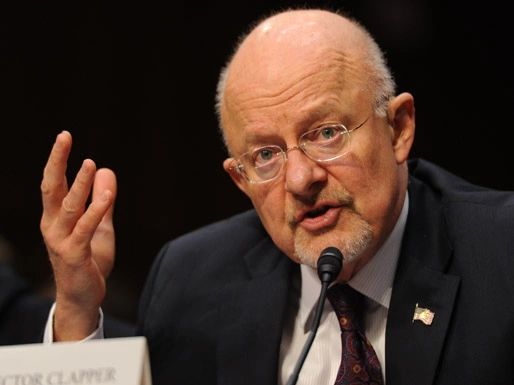 H. Darr Beiser, USA TODAY
H. Darr Beiser, USA TODAY
Nov. 6
Petraeus' boss learns of probe
James Clapper (pictured here), director of national intelligence, learns of the Petraeus investigation from the Justice Department on election night.
(Jan. 31, 2012 photo by H. Darr Beiser, USA TODAY)

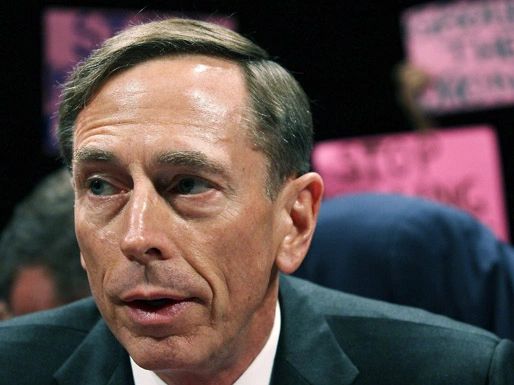 Musadeq Sadeq, AP
Musadeq Sadeq, AP
Nov. 7
The White House is notified
Clapper informs the White House about the situation.
(July 18, 2011 photo by Musadeq Sadeq, AP)
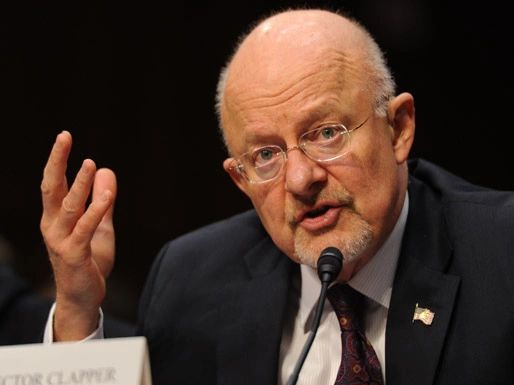 Musadeq Sadeq, AP
Musadeq Sadeq, AP
Nov. 7
The White House is notified
Clapper informs the White House about the situation.
(July 18, 2011 photo by Musadeq Sadeq, AP)
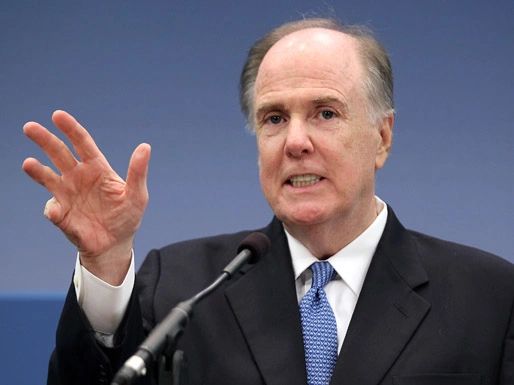 Alex Wong, Getty Images
Alex Wong, Getty Images
Nov. 8, morning
Petraeus asks to meet president
Petraeus calls White House national security adviser Tom Donilon (pictured here) to request a meeting with President Obama and explains why.
(Nov. 22, 2011 photo by Alex Wong, Getty Images)
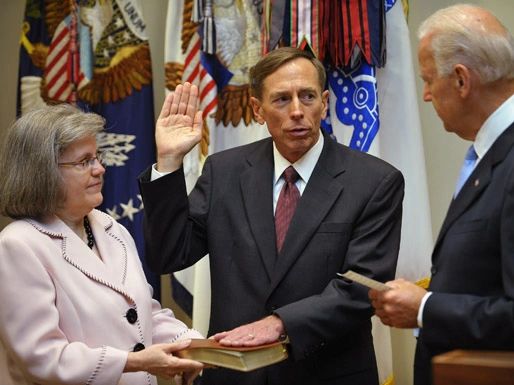 Mandel Ngan, AFP/Getty Images
Mandel Ngan, AFP/Getty Images
Nov. 8, afternoon
Petraeus offers president his resignation
Obama is briefed by staff and meets with Petraeus in the afternoon. Petraeus offers his resignation. Obama reserves a decision, instead takes the evening to think about it and confer with aides.
(Nov. 9, 2012 photo by Mandel Ngan, AFP/Getty Images)


Nov. 9
A decision is made
Obama accepts Petraeus' resignation as CIA director during a phone call with Petraeus. Obama immediately calls Petraeus' deputy, Michael Morell (pictured here), and offers him the job of acting CIA director.
(Oct. 24, 2006 photo by Dennis C. Enser, The Buffalo News via AP)
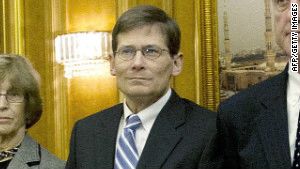 Pablo Martinez Monsivais, AP
Pablo Martinez Monsivais, AP
Nov. 9, afternoon
A White House announcement
White House announces Petraeus' resignation.
(June 29, 2010 photo by Pablo Martinez Monsivais, AP)
Mike Morell to testify instead of David Petraeus on Benghazi
The resignation of CIA Director David Petraeus came less than a week before he was scheduled to testify before the Senate Intelligence Committee on the Sept. 11 attacks in Benghazi, Libya.
A spokesman for the committee said acting CIA Director Mike Morell would testify Thursday in place of Petraeus, who resigned Friday after admitting to an extramarital affair.
Petraeus was among a host of intelligence officials who were on tap to appear at the closed hearing, including James Clapper, the director of national intelligence, and Matthew Olsen, the director of the National Counterterrorism Center. The hearing is the second to be held by the Senate panel on the attacks that killed Christopher Stevens, the U.S. ambassador to Libya, and three diplomatic aides.
(PHOTOS: Gen. Petraeus’s career)
Petraeus has won plaudits from both sides of the aisle on Capitol Hill, sailing through Senate confirmation on a 94-0 vote in June 2011. Top lawmakers expressed regret at Petraeus’s resignation in statements Friday.
Sen. Dianne Feinstein, chairwoman of the Intelligence Committee, said she wished President Barack Obama hadn’t accepted Petraeus’s resignation, but she understood the decision.
(Also on POLITICO: Full text of Petraeus resignation letter)
“At CIA, Director Petraeus gave the agency leadership, stature, prestige and credibility both at home and abroad,” Feinstein said in a statement. “On a personal level, I found his command of intelligence issues second to none.”
Sen. John McCain, the top Republican on the Armed Services Committee, also praised Petraeus in a statement Friday.
“Gen. David Petraeus will stand in the ranks of America’s greatest military heroes,” McCain said. “His inspirational leadership and his genius were directly responsible — after years of failure — for the success of the surge in Iraq. Gen. Petraeus has devoted his life to serving the country he loves, and America is so much the better for it. We are immensely grateful for Gen. Petraeus’s decades of work on behalf of our nation, our military and our security. Our thoughts and prayers are with him and his family.”
Read more: http://www.politico.com/news/stories/1112/83649.html#ixzz2CDajencZ
Michael J. Morell
https://www.cia.gov/about-cia/leadership/michael-j.-morell.html
Acting Director, Central Intelligence Agency
Mr. Michael J. Morell became Acting Director of the Central Intelligence Agency on November 9, 2012. A career Agency officer, he has held a variety of leadership positions, including Deputy Director of CIA, Associate Deputy Director of CIA, and Director for Intelligence.
Mr. Morell served as Deputy Director, beginning in May 2010, under former Directors Leon E. Panetta and David H. Petraeus. As Associate Deputy Director from July 2006 until May 2008, he assisted the Director in the overall leadership of the Agency, focusing on its internal management. As Director for Intelligence for the two years prior to his current assignment, Mr. Morell guided the Agency’s all-source analytic arm, which produces strategic and tactical assessments for US policymakers and military commanders.
Mr. Morell began his Agency career as an analyst tracking international energy issues, and subsequently worked for 14 years as an analyst and manager on East Asia. In 1999, he was appointed Director of the DI’s Office of Asian Pacific and Latin American Analysis. He also has served as a presidential briefer, as chief of the staff that produces the President’s Daily Brief, and as an executive assistant to DCI George J. Tenet. From 2003 until 2006, he served overseas. Upon his return, he was briefly Deputy Director for Intelligence at the National Counterterrorism Center before being asked to become Associate Deputy Director at CIA.
Mr. Morell earned a bachelor’s degree in economics from the University of Akron and a master’s degree in economics from Georgetown University.
Posted: May 06, 2010 09:43 AM
Last Updated: Nov 09, 2012 06:57 PM
Last Reviewed: May 06, 2010 09:43 AM
http://www.thedailybeast.com/articles/2012/11/09/michael-j-morell-introducing-the-cia-s-new-acting-director.html
BETRAEUS! THE GENERAL'S AFFAIR
Michael J. Morell: Introducing the CIA’s New Acting Director
by Kevin Fallon Nov 9, 2012 8:39 PM EST
David Petraeus exits as head of the CIA under a cloud of scandal, making way for Michael J. Morell—an unassuming, 32-year agency veteran—to fill the spot at the top.
Michael J. Morell had no intention of working for the CIA. The Ohio native was fresh out of the University of Akron, where he earned a B.A. in economics. “I had every intention of going to grad school and getting a Ph.D. in economics and teaching,” he said in a 2006 interview. “But a friend of mine suggested, ‘Why don’t you send a resume to the CIA?’” He even approached his job interview as nothing more than a free trip to the nation’s capital.
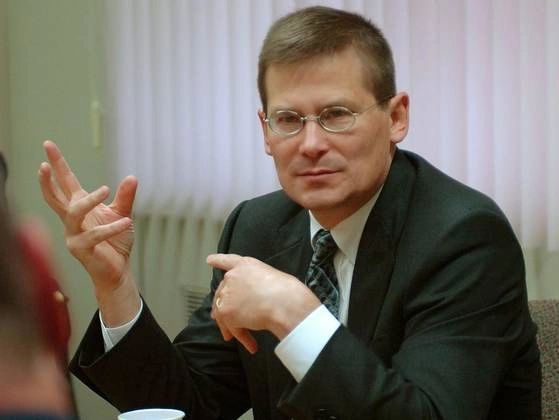
Michael Morell, Deputy Director of the CIA, watches as US Secretary of Defense Leon Panetta, meets with Crown Prince Salman bin Abdulaziz on June 20, 2012 in Jeddah, Saudi Arabia. (Pool / Getty Images)
Fast forward three decades, and the CIA’s top-ranking officer, David Petraeus, a highly decorated former general, has stepped down as the head of the agency,confessing to an extra-marital affair. Morell, for all of his initial lack of enthusiasm for the agency, has now been promoted from deputy to acting director of the CIA. He’s running the show.
Of course, this isn’t Morell’s first rodeo. He served as acting director once before, after Petraeus’s predecessor, Leon E. Panetta, resigned in 2011. Morell went back to his role a deputy director once Petraeus took his post.
But whereas Petraeus gained the position thanks to an impressive 37-year military career, Morell started at the bottom and worked his way up through the ranks.
His CIA career began in 1980, when he was 21-years-old. He was an economic analyst with a salary of $15,193. For 14 years, he served as an analyst and manager of East Asia intelligence, and was promoted to director of the CIA’s office of Asian, Pacific, and Latin American analysis in 1999.
He’s been in the room with the big guys for over a decade. For a time, he served as the executive assistant to former CIA director George J. Tenet, and was in charge of presidential briefings for parts of both Bill Clinton’s and George W. Bush’s presidencies. As chief of the staff that produces the president’s daily brief, his job was to sit down every morning with the president and fill him on the latest intelligence.
He was with President Bush on 9/11.
He was Bush’s intelligence advisor at the time, and, according to The Wall Street Journal, had “been at the center of nearly every fight against al Qaeda and has seen the limits of U.S. intelligence.” As such, he served as “the CIA’s devil’s advocate before the raid on Osama bin Laden’s hideout in Pakistan.”
It was Morell who in August 2001 delivered the fateful report, “Bin Laden Determined to Strike the U.S.,” that would be made infamous by the 9/11 Commission. He was in that Sarasota, Florida classroom where Bush was reading a children’s book when he first heard that the World Trade Center had been hit. When Bush asked, “Who did this?” Morell said, “I haven’t seen any intelligence, but I would bet every dollar I have that it’s al Qaeda.”
Even while Morell still served under Petraeus, agency veterans worried that he was too much of an insider to properly lead the agency.
After serving as Bush’s daily intel officer, Morell went overseas from 2003 to 2006 on an undisclosed agency assignment of which there are no details. He was named deputy director for intelligence at the National Counterterrorism Center when he returned, but only held the position for three months before he began his trajectory from the CIA’s No. 3 to its No. 2 and now acting No. 1. He was named associate deputy director of the CIA in 2006, the first person to hold that title. Two years later, he was promoted to deputy director of the CIA, the agency’s second highest in command.
And he’s managed nearly all of this with nearly no public profile.
When Petraeus took over at the CIA in 2011, it was Morell, with his three decades of agency experience, who was charged with shepherding the general into the role. Gauging the response of Petraeus’s contemporaries—both John McCain and Dianne Feinstein have publicly bemoaned his resignation and praised his tenure with the CIA—he succeeded.
Now, the man behind the curtain is alone at the top.
When it comes to how Morell might run his ship as acting director, some clues may be gleaned from the high praise he’s expressed for his former boss, Petraeus. “I’ve never seen anyone with his drive—ever,” Morell told The New York Times just last week, as Petraeus prepped to testify before Congress about the attack on the U.S. consulate in Libya. “He remembers what he asks for. Three weeks later he’ll say at a morning meeting, ‘Whatever happened to that? Is that done yet?’”
Yet even while Morell still served under Petraeus, agency veterans worried that he was too much of an insider to properly lead the agency. After all, he had never worked anywhere else. But his history with the organization and knowledge of its failures as well as its successes could prove an asset. For example, as the hunt for bin Laden peaked in 2011, it was Morell, according to Panetta, who insisted on due diligence before the raid. “Michael always raised the experience of what happened with weapons of mass destruction in Iraq,” Panetta said.
Having survived 32 years of CIA controversy and failed missions, Morell, unlike some of his more aggressive predecessors, understands the importance of humility: “We end up having bits of information that have a multitude of possible explanations,” he said in a rare 2011 interview. “You’ve got to be really humble about the business in.”
He also, presumably, understands the importance of not having an affair.
TAGS:
- CIA headquarters,
- U.S. News,
- David Petraeus
http://www.usatoday.com/story/news/world/2012/11/12/petraeus-successor/1700449/
Michael Morell or John Brennan may succeed Petraeus
By Jim Michaels and Aamer Madhani, USA TODAY
12:34AM EST November 13. 2012 - WASHINGTON – President Obama will probably avoid a prominent name and instead seek out a quiet professional to replace David Petraeus, the head of the CIA who resigned after acknowledging an extramarital affair, experts said Monday.
High on the list are the CIA's deputy director and the White House's top counterterrorism adviser, according to security analysts.
"They have two good candidates from within" the administration, said Michael O'Hanlon, a Brookings Institution analyst and member of the CIA advisory board.
The inside track may go to Michael Morell, who was named as the agency's acting director immediately after Petraeus resigned.
Tommy Vietor, National Security Council spokesman, noted that Morell, who served as one of the primary briefers to the president during planning of the operation that led to the killing of Osama bin Laden, "developed a very close relationship with the president" and "earned the president's trust."
Morell is a career CIA officer and began his career at the agency as an analyst tracking international energy issues, then worked for 14 years as an analyst and manager on East Asia. He has held several leadership positions at the agency.
Morell could serve as acting director for several months before a permanent replacement is named.
The administration may also be considering John Brennan, the White House's top counterterrorism adviser, who has overseen the expanded use of drones and special operations forces against Muslim terrorists. Brennan carries some political baggage that could make Senate confirmation difficult. He withdrew his name from consideration for a top intelligence position in 2008 because of his alleged links to "enhanced interrogation techniques" while an official at the CIA.
Also under consideration are Michael Vickers, a top Defense Department official, and Jane Harman, a former congresswoman who was a ranking Democrat on the House Intelligence Committee, according to analysts. Rep. Mike Rogers, R-Mich., chairman of the House Intelligence Committee and a former FBI official, was another possibility, according to a report in The New York Times.
Experts said the administration will want to avoid a nomination process that dredges up controversial issues, including the attack on the U.S. consulate in Benghazi, Libya, that led to the death of the U.S. ambassador and three others.
"I don't think you need to have a major personality at CIA," said Reuel Marc Gerecht, a fellow at the Foundation for Defense of Democracies and a former CIA case officer. "It's not required."
http://www.thedailybeast.com/articles/2012/11/10/paula-broadwell-is-she-petraeus-s-other-woman.html
BETRAEUS! THE GENERAL'S AFFAIR
Paula Broadwell: Is She Petraeus’s ‘Other Woman’?
by Diane Dimond Nov 10, 2012
Now that CIA director David Petraeus has stepped down, citing an extramarital affair, his biographer is in the spotlight. Diane Dimond reports on what we know about Paula Broadwell.
Paula Broadwell lives in the historic, upscale Dilworth neighborhood of Charlotte, N.C., with her radiologist husband and two young boys. Their stately two-story brick home sits on a spacious corner lot where ancient old trees hang over the streets. The five-bedroom, four-bathroom home is listed on the tax rolls as being worth $908,000 and it is just three blocks from the city’s trendy uptown.

Screengrab via You Tube
It hardly looks like the place where a national political scandal might lead, but it is here that Broadwell, 39, may have been when she learned that Gen. David Petraeus, director of the CIA, had quit his post due to the revelation of an extramarital affair.
A reporter’s drive-by on the evening the Petraeus scandal broke revealed two cars in the opened garage, a BMW and a Nissan Pathfinder, and the house completely dark except for the soft glow from the front porch light. (Ironically, this is also the neighborhood to which former senator John Edwards moved his mistress, Rielle Hunter, and their infant daughter.)
Broadwell, the attractive brunette with the expressive green eyes, is reported to be the “other woman” in the Petraeus affair. His letter to the president read in part, “After being married for over 37 years, I showed extremely poor judgment by engaging in an extramarital affair. Such behavior is unacceptable, both as a husband and as the leader of an organization such as ours." President Obama accepted the resignation.
To say Paula Broadwell is an overachiever is an understatement. She grew up in North Dakota, graduated from West Point and worked in military intelligence. She studied Arabic in the Middle East—Jordan in particular—and specialized in counterinsurgency, counterterrorism, and geopolitical analysis. This is not a field that includes many women, so the stunning Broadwell likely stood out among her peers.
As the story goes, Broadwell and Petraeus first laid eyes on each other in 2006.
As the story goes Broadwell and Petraeus first laid eyes on each other in 2006 when she was a graduate student at Harvard’s Kennedy School of Government. After she told him about her interests he reportedly handed her his card, offered his help and told her to stay in touch. As she told the Charlotte Observer earlier this year, “He really cares about mentoring.” Broadwell’s first child, a son named Landon, would be born shortly after that meeting.
When it came time to write her doctoral dissertation Broadwell included a case study of Patraeus’s leadership techniques. She apparently did so with the general’s blessing and cooperation.
Routine contact between the young woman and the older man seems evident. In June 2010, after the birth of her second son, Lucien, she learned that President Obama had put Petraeus in charge of events in Afghanistan. It was then Broadwell got the idea to morph her dissertation material into a book.
Broadwell was determined to follow her mentor into the war zone to continue her research. She has said she enlisted the help of her husband, Scott, her mother, other relatives, and neighbors to take care of the boys while she spent time abroad. But first, Broadwell found a literary agent and a willing publisher at Penguin Press. This military-trained woman was not a tested author so she was teamed with veteranWashington Post journalist Vernon Loeb.
In January 2012 Broadwell’s book, All In: The Education of General David Petraeuswas released to good reviews. Historian and author Doris Kearns Goodwin called the biography “majestic.”
During interviews with Charlie Rose, Sean Hannity, and Jon Stewart, Broadwell explained that she had made half a dozen trips to Afghanistan and had spent a total of three months there. She had embedded with combat troops and, she said, had interviewed General Petraeus a multitude of times, often for hours at a stretch and sometimes during runs they took together. In a photograph taken in June 2012, the pair exchange a glance during a flight to Helmand Province.
To be sure, there has been no official confirmation from any quarter that the extramarital affair Petraeus wrote about in his resignation was with Paula Broadwell. To be sure, there has been no denial of that widely reported supposition either. There is also no telling how long an affair it might have been.
Several media reports, including one in The Washington Post indicate that the Petraeus admission came after the FBI conducted an investigation into the possibility that the CIA director’s e-mail security had been breached. How the bureau may have been alerted to a possible security problem isn’t known. Whether Broadwell was under suspicion of reading Petraeus’s classified e-mails is also unknown. Neither the FBI nor the CIA has commented.
“These are bad facts,” said Eric Dezenhall, a Washington, D.C.-based crisis manager. “It is very different if we’re talking about the CEO of Colgate Palmolive having an affair. He is head of the CIA and should never let anyone near who might be in a position to overhear a phone call or read an e-mail.” So is Patraeus’s career in Washington over? Dezenhall speculates: “His high-level civil service career is over. He’ll still have a lot of options but now he will have to realize what they are not.”
David Howell Petraeus, 60, is a graduate of West Point and steeped in the academy’s honor code—which demands that “a cadet will not lie, cheat, steal, or tolerate those who do.” His wife of nearly 40 years, Holly, also knows the code her husband lives by. When she first met the young Petraeus in 1973, he was a cadet at West Point where her father was superintendent.
Like The Daily Beast on Facebook and follow us on Twitter for updates all day long.
Investigative journalist and syndicated columnist Diane Dimond has covered all manner of celebrity and pop-culture stories. Her latest book is Cirque Du Salahi,which uncovered the full story behind Tareq and Michaele Salahi, the so-called White House gatecrashers. Dimond has written extensively about the John Edwards sex scandal for The Daily Beast, and she first broke the news that King of Pop Michael Jackson was under investigation for child molestation. She is the author of the book Be Careful Who You Love—Inside the Michael Jackson Case. She lives in New York with her husband, broadcast journalist Michael Schoen.
For inquiries, please contact The Daily Beast at editorial@thedailybeast.com.
TAGS:
- Paula Broadwell,
- David Petraeus,
- U.S. News
- Women in the World
RELATED SECTIONS:
http://www.thedailybeast.com/newsweek/2012/11/04/general-david-petraeus-s-rules-for-living.html
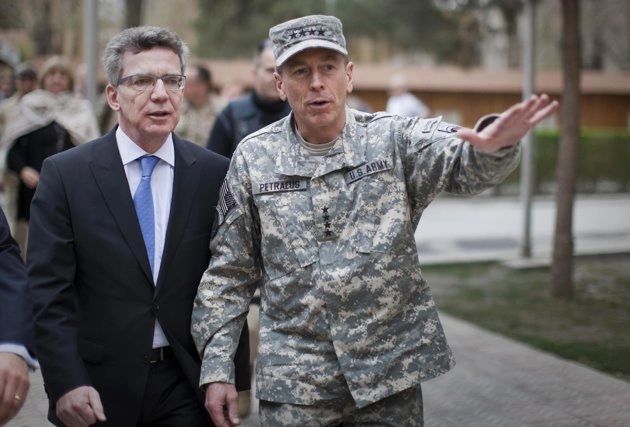


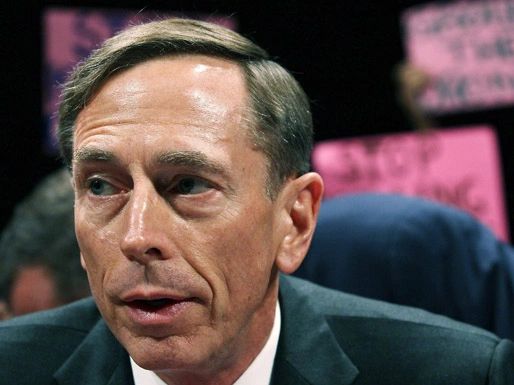



General David Petraeus’s Rules for Living - Nov 5, 2012
1. Lead by example from the front of the formation. Take your performance personally—if you are proud to be average, so too will be your troops.
2. A leader must provide a vision—clear and achievable “big ideas” combined in a strategic concept—and communicate those ideas throughout the entire organization and to all other stakeholders.
3. A leader needs to give energy; don’t be an oxygen thief.
4. There is an exception to every rule, standard operating procedure, and policy; it is up to leaders to determine when exceptions should be made and to explain why they made them.
5. We all will make mistakes. The key is to recognize them and admit them, to learn from them, and to take off the rear view mirrors—drive on and avoid making them again.
6. Be humble. The people you’ll be leading already have on-the-ground conflict experience. “Listen and learn.”
7. Be a team player. “Your team’s triumphs and failures will, obviously, be yours.” Take ownership of both.
8. Don’t rely on rank. If you rely on rank, rather than on the persuasiveness of your logic, the problem could be you and either your thinking or your communication skills. Likewise, sometimes the best ideas come from bottom-up information sharing (i.e., “Need to share” not “Need to know”). Use “directed telescopes” to improve situational awareness.
9. Leaders should be thoughtful but decisive. Listen to subordinates’ input, evaluate courses of action and second- and third-order effects, but be OK with an “80 percent solution.” “There will be many moments when all eyes turn to you for a decision. Be prepared for them. Don’t shrink from them. Embrace them.” Sometimes the best move is the bold move.
10. Stay fit to fight. Your body is your ultimate weapons system. Physical fitness for your body is essential for mental fitness.
11. The only thing better than a little competition is a lot of competition. Set challenges for your subordinates to encourage them to excel.
12. Everyone on the team is mission critical. Instill in your team members a sense of great self-worth—that each, at any given time, can be the most important on the battlefield.
http://www.huffingtonpost.com/2012/11/13/william-ward_n_2122379.html?utm_hp_ref=politics

AP Photo/Caleb Jones)
William Ward, Four Star General, Demoted For Lavish Spending, Ordered To Repay $82,000
By LOLITA C. BALDOR 11/13/12
FOLLOW:
Video, 4 Star General, Africa Command, Power & Politics, Four Star General, General Africa,Politics News
WASHINGTON — Defense Secretary Leon Panetta has demoted the former head of U.S. Africa Command who was accused of spending thousands of dollars on lavish travel and other unauthorized expenses, the Pentagon said Tuesday.
Panetta stripped Gen. William "Kip" Ward of a star, which means that he will now retire as a three-star lieutenant general. Ward also has been ordered to repay the government $82,000.
Secretary of the Army John McHugh concurred with Panetta's decision, Pentagon press secretary George Little said in a statement Tuesday.
The demotion came after retired Army Gen. David Petraeus resigned as CIA director because of an extramarital affair and Marine Gen. John Allen was being investigated for potentially improper communications with a woman.
"Secretary Panetta insists that leaders within the Department of Defense exemplify both professional excellence and sound judgment," Little said. "The secretary is committed to ensuring that any improprieties or misconduct by senior officers are dealt with swiftly and appropriately."
A spokesman for Ward said Tuesday that the general "has never been motivated by personal gain and fulfilled each and every mission assigned to him and served his country and the men and women assigned to his commands with distinction."
"While Gen. Ward is not perfect he has always been guided by his faith in God and the belief that there is no greater honor as a patriot than to lead those who choose to serve our nation in the armed forces," spokesman Chris Garrett said in a statement.
Retiring as a three-star general will cost Ward about $30,000 a year in retirement pay, giving him close to $208,802 a year rather than the $236,650 he would receive as a four-star general.
Army Gen. Martin Dempsey, chairman of the Joint Chiefs of Staff, had urged Panetta to allow Ward to retire at his full four-star general rank, according to defense officials.
A report by the Defense Department inspector general found that Ward used military vehicles to shuttle his wife on shopping trips and to a spa and billed the government for a refueling stop overnight in Bermuda, where the couple stayed in a $750 suite. The report detailed lengthy stays at lavish hotels for Ward, his wife and his staff members, and the use of five-vehicle motorcades when he traveled to Washington.
The report also said Ward and his wife, Joyce, accepted dinner and Broadway show tickets from a government contractor during a trip during which he went backstage to meet actor Denzel Washington. The couple and several staff members also spent two nights at the Waldorf Astoria hotel.
Other charges were that Ward often extended his overseas trips – particularly those to the U.S. – for personal reasons, resulting in "exponential" increases in costs.
Although the report included responses from Ward to a number of the allegations, investigators often found records and statements that contradicted his explanations. At one point, Ward defended the Bermuda layover, saying that it came up on short notice, which is why his security team had to stay there longer. The report found records showing that the layover had been planned for at least four days in advance.
A common theme running through the report was Ward's insistence that his wife travel with him at government cost, even though it was often not authorized and she performed few official duties. It said he also routinely stayed in high-priced suites in luxury hotels rather than in standard rooms or less expensive locales.
The allegations, coming after a 17-month investigation, delayed Ward's planned April 2011 retirement. And they were an embarrassing end note to his career, since he had claimed a place in history as the military's first commander of Africa Command.
Panetta's options regarding Ward were limited by complex laws and military guidelines. He had only one real choice: Allow Ward to retire as a four-star or demote him and force him to retire as a lieutenant general.
In order for Ward to be demoted to two-star rank, investigators would have to conclude that he also had problems before moving to Africa Command, and officials said that does not appear to be the case.
The investigation dragged on for so long that that Ward was temporarily dropped to two-star status. Under military guidelines, if a full general is not serving in a four-star command or office for more than 60 days, he or she is automatically reduced to two-star rank. Ward would not be able to recoup any back pay for the time at the two-star rank, even though he is being retired at the three-star level.
Major general, or two-star, is the highest rank to which an officer can be promoted by regular military action. Becoming a three-star – lieutenant general – or a four-star general requires a presidential nomination and confirmation by Congress. It, therefore, is not considered permanent and lasts only as long as the person is serving in a job of that rank.
That technical demotion is not uncommon as generals move from job to job and unexpected delays occur. It would not have affected Ward's ability to retire as a four-star, if he had been cleared of the charges.
http://www.thedailybeast.com/galleries/2012/11/12/paula-broadwell-eric-cantor-more-who-s-who-in-the-petraeus-scandal-photos.html#052a29e8-09e6-42a4-b5f3-13d6323ec983
Gen. David Petraeus, the Former CIA Director
by Abby Haglage
As the scandal over Gen. David Petraeus’s extramarital affair deepens, new names are being added to the cast of characters. From alleged mistress Paula Broadwell to Holly Petraeus, the general’s wife of 38 years, to House Majority Leader Eric Cantor, who spilled the beans to those at the top, see key players in one of the CIA’s biggest messes.
In a move that shocked a nation still reeling from the election, Gen. David Petraeus resigned from his post as CIA director Friday after admitting to an affair, apparently with his biographer Paula Broadwell. In a letter to his colleagues, Petraeus called the affair “unacceptable” and an exercise in “poor judgment.” Lamenting the unfortunate end to an otherwise shining career, he expressed gratitude for the chance to work with such a great team. “I will always treasure my opportunity to have done that with you, and I will always regret the circumstances that brought that work with you to an end,” he said. The news tarnished his seemingly picture-perfect 38-year marriage to college sweetheart Holly.

 Mr Wijat's friend Magic Rabbit
Mr Wijat's friend Magic Rabbit 















































 z
z

























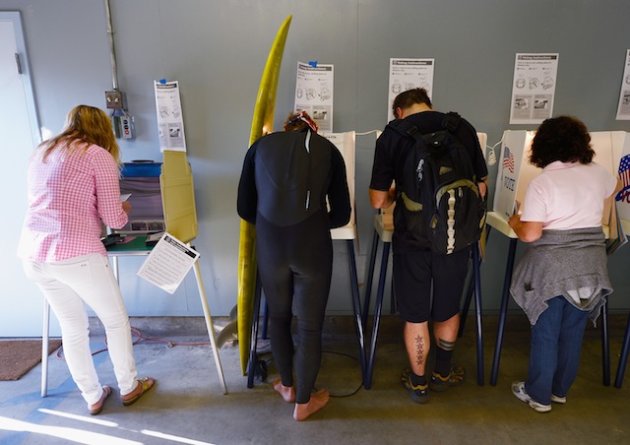





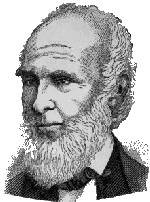














 One question this Sunday is whether the Jesuits are an association of highly organized warrior priests? Another question is why has history covered important facts behind alleged Jesuit involvement in the assassination of Abraham Lincoln, as well as why did the U.S. government cut-off all diplomatic relations with the Vatican in 1867 as a result of its alleged connection with the murder of Lincoln?
One question this Sunday is whether the Jesuits are an association of highly organized warrior priests? Another question is why has history covered important facts behind alleged Jesuit involvement in the assassination of Abraham Lincoln, as well as why did the U.S. government cut-off all diplomatic relations with the Vatican in 1867 as a result of its alleged connection with the murder of Lincoln?
 THE strikes upon the World Trade Center and the Pentagon on September 11, 2001 marked a pivotal point in the evolution of the "experiment of popular government". What followed has been nothing short of a pronounced continuation of a religious war, which had its origins in the Middle Ages, using the armed forces of a compliant host nation or alliance of nations according to the wishes of the Papacy. The ultimate goal is the eventual re-location of this so-called "Chair of Peter" to Jerusalem in order to direct and control all the people of the earth and the complete destruction of anything not in accord with Her dictates. Chief among these ideals, which are hated by the Church of Rome, are freedom of conscience, freedom of religion, freedom of the press and freedom of association; in fact, every fundamental freedom on which the United States was founded.
THE strikes upon the World Trade Center and the Pentagon on September 11, 2001 marked a pivotal point in the evolution of the "experiment of popular government". What followed has been nothing short of a pronounced continuation of a religious war, which had its origins in the Middle Ages, using the armed forces of a compliant host nation or alliance of nations according to the wishes of the Papacy. The ultimate goal is the eventual re-location of this so-called "Chair of Peter" to Jerusalem in order to direct and control all the people of the earth and the complete destruction of anything not in accord with Her dictates. Chief among these ideals, which are hated by the Church of Rome, are freedom of conscience, freedom of religion, freedom of the press and freedom of association; in fact, every fundamental freedom on which the United States was founded.

 The next event was the death of Pope John Paul II. If anyone has doubts as to the political power the Roman Church has, these doubts were laid to rest as every national flag was lowered to half mast and every form of media all over North America, in the most worshipful manner bowed the knee, like those in Nebuchadnezzar's time and those in the days of the Caesars, to the man who claims to stand in the place of Almighty God. In this case a man who, while under Nazi occupation in Poland, vigorously helped to produce and sell 'Zyklon B' for chemical company I.G. Farben, a nerve gas which was used to kill those wholesale in the death camps of Europe. A man who, in spite of one of the world's greatest outbreaks of primarily homosexual pedophilia by Roman priests in recent memory, virtually swept the whole matter under the rug until he was finally forced to react by an outraged public. A man who presided over the Roman priesthood's led and encouraged genocide in Rwanda and the religious mass murders in the Balkans. A real godly man, n'est pas? Apparently every major political leader from around the world and representatives from every major religion thought so.
The next event was the death of Pope John Paul II. If anyone has doubts as to the political power the Roman Church has, these doubts were laid to rest as every national flag was lowered to half mast and every form of media all over North America, in the most worshipful manner bowed the knee, like those in Nebuchadnezzar's time and those in the days of the Caesars, to the man who claims to stand in the place of Almighty God. In this case a man who, while under Nazi occupation in Poland, vigorously helped to produce and sell 'Zyklon B' for chemical company I.G. Farben, a nerve gas which was used to kill those wholesale in the death camps of Europe. A man who, in spite of one of the world's greatest outbreaks of primarily homosexual pedophilia by Roman priests in recent memory, virtually swept the whole matter under the rug until he was finally forced to react by an outraged public. A man who presided over the Roman priesthood's led and encouraged genocide in Rwanda and the religious mass murders in the Balkans. A real godly man, n'est pas? Apparently every major political leader from around the world and representatives from every major religion thought so. The Jesuits killed Lincoln and buried the evidence. But just as water seeks its own level, so does the truth eventually surface and make itself known. Deception and denial are only band-aids in the modern day world of intelligence, tooled by the Internet and other high tech investigative systems. Today anyone can become a good detective. If it had not been myself, someone else would have undertaken the task of doing the digging and piecing together the true story of President Lincoln's assassination.
The Jesuits killed Lincoln and buried the evidence. But just as water seeks its own level, so does the truth eventually surface and make itself known. Deception and denial are only band-aids in the modern day world of intelligence, tooled by the Internet and other high tech investigative systems. Today anyone can become a good detective. If it had not been myself, someone else would have undertaken the task of doing the digging and piecing together the true story of President Lincoln's assassination.